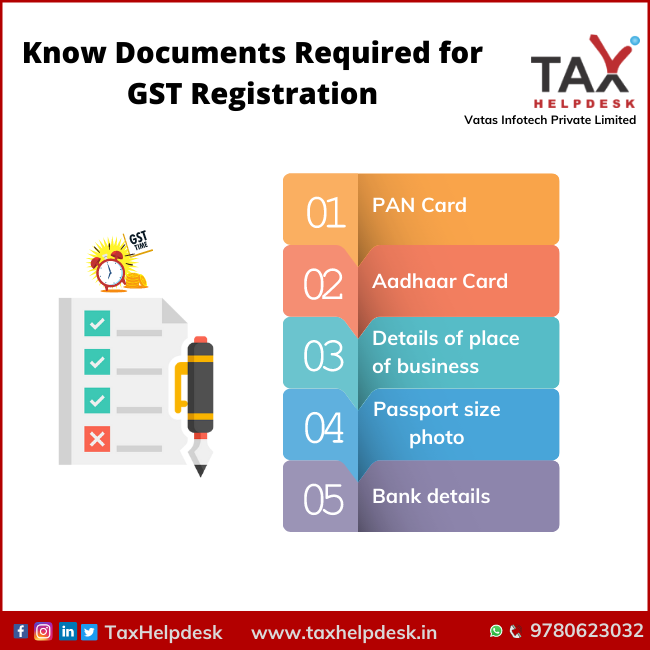How to Locate the most effective GST Registration Services in Singapore Swiftly
How to Locate the most effective GST Registration Services in Singapore Swiftly
Blog Article
Throughout: The Ultimate Roadmap to GST Registration for Services Looking For Financial Stability
Browsing the intricacies of Goods and Provider Tax (GST) registration is a critical step for services pursuing financial security. From comprehending the fundamental concepts of GST to following post-registration guidelines, the procedure can seem intimidating in the beginning glimpse. However, breaking down the roadmap into convenient steps can streamline the registration trip for businesses seeking to improve their economic standing. Let's check out the crucial parts that make up this best roadmap and discover just how each stage adds to laying a strong foundation for economic success.
Understanding GST Essentials
Looking into the basic principles of Goods and Services Tax (GST) is vital for getting a detailed understanding of its effects on companies and the economic situation. GST is a value-added tax levied on many items and solutions for domestic intake. It has replaced several indirect taxes that existed in the pre-GST period, streamlining the tax structure and boosting simplicity of doing organization in India. Under the GST system, both services and products are strained at a specific rate, which is figured out based upon their classification. If their yearly turn over surpasses the threshold limitation set by the federal government, organizations are called for to sign up for GST. Input Tax Obligation Debt (ITC) is a significant attribute of GST, enabling services to claim credit score for taxes paid on inputs, reducing the overall tax burden. Recognizing the fundamentals of GST is crucial for businesses to abide by tax guidelines, manage their finances successfully, and add to the country's economic development by joining a transparent tax system.
Qualification Standards for Enrollment
To register for GST, businesses must meet specific eligibility criteria developed by the federal government. The primary qualification need is that any type of business associated with the supply of goods or solutions with a yearly accumulation turn over above the threshold limit established by the authorities should register for GST. Since the existing guidelines, the threshold restriction for GST registration is an annual aggregate turn over of 40 lakhs for businesses operating within a state, except for unique category states where the limit is 20 lakhs. Additionally, particular businesses are needed to sign up for GST irrespective of their turn over, such as interstate vendors, informal taxed persons, and companies responsible to pay tax obligation under the reverse charge mechanism. It is vital for services to extensively examine their turn over and purchase types to determine their GST registration obligations precisely. Failing to register for GST when eligible can bring about charges and lawful repercussions, making it crucial for companies to follow the defined qualification criteria.
Papers Needed for Enrollment
Having fulfilled the eligibility standards for GST registration, companies should currently ensure they have the requisite documents in area to continue with the registration procedure effectively. The records needed for GST enrollment commonly include evidence of organization constitution, such as collaboration act, enrollment certification, or unification certification for different types of businesses. In addition, companies need to supply documents establishing the principal location of business, such as a rental agreement or electrical energy costs.
Step-by-Step Registration Refine
Commencing the GST enrollment procedure includes a series of structured steps to make certain a click now certified and smooth registration for businesses. The initial step is to check out the GST site and fill in the registration form with precise information of the business entity. Following this, the applicant obtains a Short-term Recommendation Number (TRN) which is made use of to resume the application procedure if it's not completed in one go.
Next, all required files as per the checklist supplied by the GST portal demand to be uploaded. These papers normally consist of evidence of organization registration, address and identity proofs of promoters, economic declarations, and business entity's frying pan card.

Post-Registration Conformity Guidelines

Final Thought
To conclude, organizations looking for economic security should comprehend the basics of GST, meet eligibility criteria, collect needed records, adhere to the step-by-step registration procedure, and adhere to post-registration standards - Best GST registration services in Singapore. By adhering to these actions, businesses can ensure conformity with tax regulations and preserve monetary security in the future
Additionally, particular organizations are needed to register for GST irrespective of their turn over, such as interstate vendors, laid-back taxable individuals, and organizations more tips here accountable to pay tax under the reverse charge device.Having met the eligibility standards for GST enrollment, businesses must currently guarantee they have the requisite records in place to continue with the registration procedure successfully. The papers required for GST enrollment normally include evidence of service constitution, such as partnership action, enrollment certificate, or unification certification for different kinds of businesses. Furthermore, services need to offer records establishing the primary area of service, such as a rental arrangement or power costs.Commencing the GST registration procedure involves a collection of structured steps to ensure a smooth and compliant registration for services.
Report this page